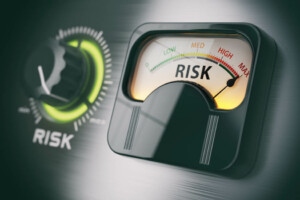
This article was written by Wayne Wachell and originally released on B The Change
First, the dark stuff.
We are at a point in history where climate change is no longer a looming threat but a reality that’s very much upon us. Carbon dioxide levels are the highest point in 3 million years, according to the Global Atmosphere Watch program. All the while, the number of people on the planet is growing at an exponential rate. Worldwide population is 7.6 billion, and the United Nations estimates it will increase to 11.2 billion by 2100.
The situation seems dire, and it is. But when talking about climate change, it’s easy to get bogged down by the magnitude of the problem, so it’s important to lead with hope.
The good news is, as B Corps, we’re solution seekers by nature. There are actions we can take as business owners to slow the rate of climate change, and with Earth Day celebrated earlier this week, they’re top of mind.
Where to Start
A good place to start: taking a look at your carbon footprint. We collectively need to do better if we’re to reduce carbon emissions for the greater good of the planet. Investors are increasingly (and rightly) asking for information on the emissions of companies they are investing in, and we need to respond to this need.
One method of measuring CO2 output by businesses has been developed by an organization called Greenhouse Gas Protocol. This methodology acknowledges the emissions a company can actually control (such as fossil fuels used in operations, manufacturing, and heating), and the emissions a company can influence (such as those from employee commutes and third-party distribution). If more business owners were to use this methodology, they’d have a greater understanding of their business’s impact.
Once you have a gauge on the CO2 output from your business, you can look at tangible ways to reduce it, like putting an automatic timer on the lights, installing shades to help regulate the temperature without electricity, or using Skype or Zoom for remote meetings to reduce unnecessary travel.
Transport
If transport is essential to your business, consider purchasing a company electric car. In-person meetings are hugely valuable from a relationship-building perspective; that’s why at Genus we’ve recently adopted a new company mascot in the form of a Chevy Bolt. The Bolt has a regenerative braking function, which means the driver can recoup energy during deceleration. I typically gain 5 km worth of energy during a regular journey by using the downhill momentum.
Investments
If your company has investments, consider using them for impact by supporting clean energy companies over fossil fuel companies. History shows us divestments happen in three waves, and the same is true for fossil fuel divestment.
Already churches, universities, cities (like New York) and financial institutions (like Norges Bank) are announcing divestments, and we expect to see more in the coming months. While there is a moral reason for doing this, there is also a strong business case. As the world transitions to a low-carbon economy, there’s a huge risk of stranded assets — fossil fuels losing their value while still in the ground.
It is also worth evaluating the carbon emissions your company can save. Do you have a “smart” commute scheme to encourage carpooling or the use of public transit? Do you offer a financial incentive to employees who purchase commuter bikes or a stipend for bike maintenance for regular bike commuters?
Education
Education also plays a key role in influencing change, and your employees have a lot to teach you. Invite them to share their ideas for how to reduce your carbon footprint collectively. Maybe that involves improving home insulation, eating less meat, or opting for local fruit and vegetables with fewer food miles. A single employee or a group might emerge as your in-house environmental champions.
Final Thoughts
While climate change is a daunting subject, we believe it’s too important not to broach. At an international level, the Paris Agreement set a global action plan to avoid unpredictable climate change by limiting global warming to below 2 degrees C. While progress is being made to turn these goals into actions, we too as business owners have a valuable role to play — not only by reducing our own emissions, but in influencing others to make meaningful changes, too.






